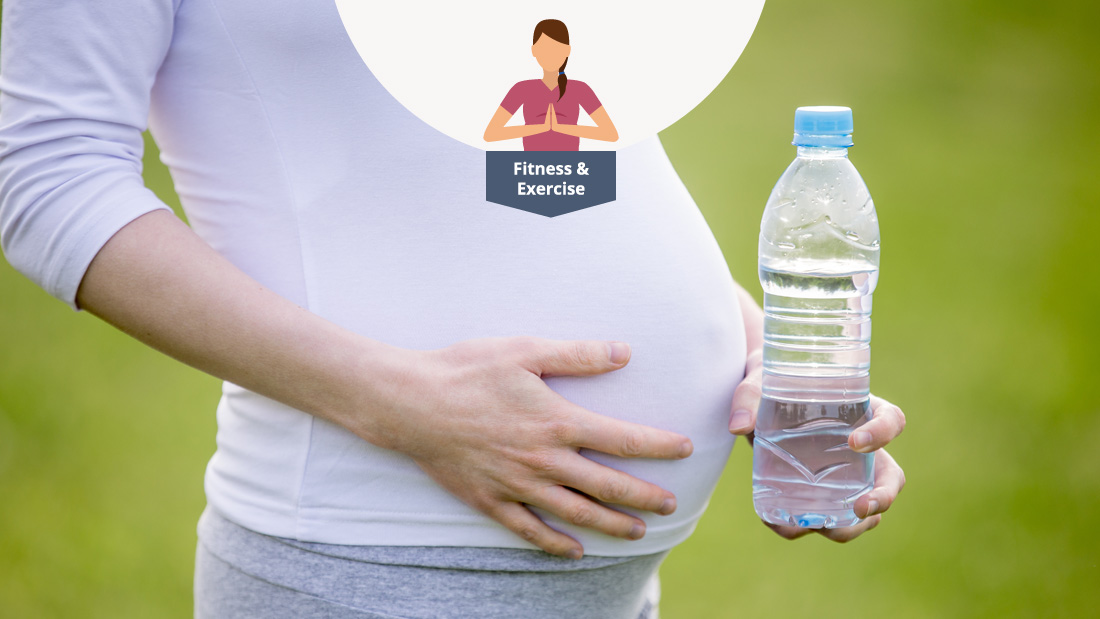
Staying fitness motivated in second trimester
Maintaining motivation in a keep fit regime can be difficult for anybody, let alone someone who is pregnant and undergoing many changes in their body.
What’s more, the excitement, combined with understandable anxiety about the forthcoming arrival, may mean you may get easily distracted from your routine.
But although this is understandable, there’s no reason why you can’t continue getting active in a safe and comfortable way and, in fact, the fitter you get now, the better prepared you’ll be for coping with labour and caring for a newborn.
The temptation to give up is extreme
Okay, your body is feeling heavier, and it’s easy to view exercise as an unnecessary chore. But it doesn’t have to be this way. In fact, because you can make the exercise very low intensity at this stage, it’s possible that your sessions could be viewed as a relaxing break from stress.
Hopefully, the following information won’t just serve you well as you progress into the third and final trimester, but also after you’ve given birth. It’s never a bad time to have an exercise routine in place, no matter where you are in life, so you might as well make sure you’re doing something you enjoy.
Good exercise in pregnancy is a fine balance
Make your goals as realistic as you can. Account for your growing bump and realise that you may not perform as well as you did in any earlier sessions. Stay aware of everything that’s happening in your body and use this to judge how high you set your goals. A lot of changes are happening to your body at this stage, and this could mean you’ll experience some uncomfortable new symptoms, so it’s perfectly acceptable to trim a few minutes from your walking time or to just practice some simple stretches on one day and count it as a full session.
Realising this should help you feel better if you ever find yourself struggling more than usual. Keep reminding yourself that exercise doesn’t have to be strenuous to be effective. Setting a goal too high may mean that you feel down when you don’t reach it and tempted to give up altogether, but not setting any goals can also be counterproductive.
If you do end up missing a session or feel you’ve not done as well as you should, it’s important that you’re forgiving with yourself. Feeling guilty and mentally beating yourself up is never a preferred method for motivation during pregnancy.
Always make sure you start slow with a good warm-up. This is a point we can’t overemphasise enough at this stage in your pregnancy. Doing a short warm-up will help ease you into the session, allowing you to pace yourself and giving you the confidence to continue. Starting out with too much intensity may only increase your chances of wanting to give up almost as soon as you begin.
Make your exercise a priority. Make a workout schedule and do your best to stick to it. You should also make sure that someone, at all times, knows your schedule. Having a set time when you can just focus on exercise and nothing else will mean you’re less likely to find excuses not to workout.
Make sure you’re getting enough support. Good motivation is often assisted by the helping hands of others. That’s why attending dedicated antenatal classes – such as yoga, Pilates, or aqua-aerobics – is such a good idea, as not only will you be working out with other expectant mums who are likely to be thinking and feeling the same things as you, but it will also add a social aspect to exercise.
Having friends at a class, can help make the exercise seem a lot more fun (it may end up not feeling like exercise at all).
If you’re struggling to find time for exercise amid all the other commitments in your life, call upon your family, friends, and partner to see if they can help you in any way they can so that you’re able to free up some time.
Always accentuate the positive. Your motivation can be helped if you keep reminding yourself of the benefits of exercising before giving birth (and there are many).
Exercise can not only help improve your physical health but also help mentally, as it releases mood-lifting endorphins that can relieve feelings of stress and anxiety (exercise may make you feel so good that you find yourself getting hooked!).
Moderate, regular exercise can make it easier for you to drift off to sleep at night, helping you beat insomnia, a common pregnancy symptom at this stage.
Plus, according to the Royal College of Obstetricians and Gynaecologists, the chances of having a shorter labour with fewer delivery complications are better for women who have undertaken strength conditioning exercise, so you might be very thankful that you kept your body active later on.
In short, you should keep in mind that whatever you do for late-pregnancy exercise, no matter how low-intensity it may seem, it is a much better option than staying sedentary.


